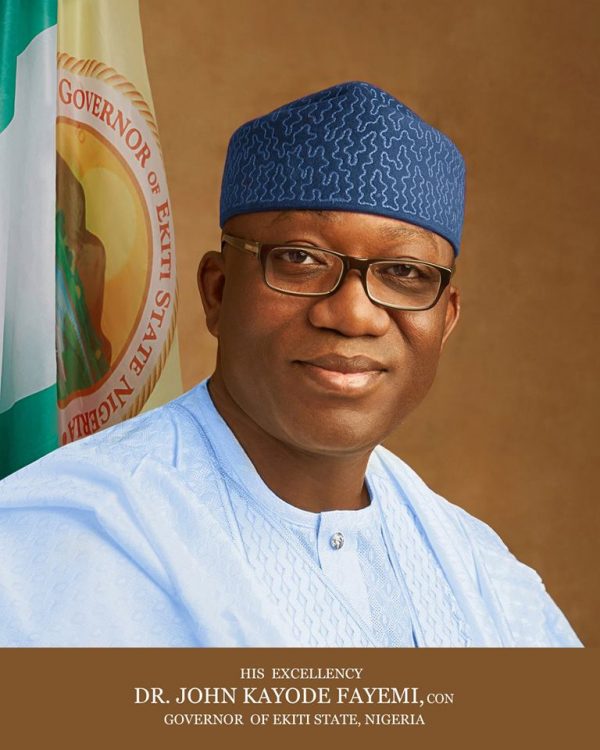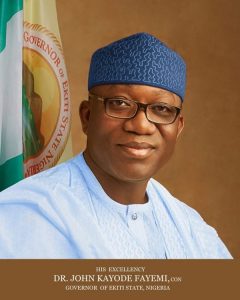Chairman of the Nigeria Governors’ Forum and Governor of Ekiti, Dr Kayode Fayemi, has said that the federal salary structure should not be imposed on states.
Fayemi made the observation when he hosted pro-chancellors of state-owned universities on Thursday in Abuja.
Fayemi said that the same salary structure should not be imposed on states because federal and state governments do not have similar economic situations.
A statement issued by Mr Abdulrazaque Bello-Barkindo, the Head, Media and Public Affairs of NGF Secretariat, quoted Fayemi as making the observation when the pro-chancellors deliberated on solutions to problems state-owned tertiary institutions face.
“You can’t impose a federal salary structure on states because we do not all have the same economic or financial situations.
” I, for example, do not have the resources of Lagos State, so you won’t expect me to earn the same salary as the governor of Lagos,” he said.
The NGF chairman added that it was true that no state had fulfilled payment of salaries to states universities, but states were not always solely responsible for this.
“The people you appoint as Vice Chancellors need to speak truth to power, they need to be able to bite the bullet, and not just be a YES person.
“We need to work together to confront these issues. We are running glorified secondary schools as universities by this system and you have to help us in insisting that the institutions too, do the right thing,” he added.
Fayemi agreed with the pro-chancellors that politics should not be involved in the nation’s school system, even though he argued that there were very smart people in politics in Nigeria.
Earlier, the pro-chancellors led by Mallam Yusuf Ali, the Pro-Chancellor of Osun State University, said that the seamless educational progression that the country should be experiencing was being hampered by a paucity of funds.
He also listed other factors such as unions like Academic Staff Union of Universities, Senior Staff Association of Nigerian Universities, Non-Academic Staff Union of Universities (NASU) and the students.
Ali also admonished the owners of state-owned universities to relegate politics to the backgrounds when considering their appointees. To him, only the best and brightest with sound academic profiles should made to engage in matters relating to education.
The team which represents all the 48 universities owned by states pleaded with governors to take over the burden of payment of salaries of state universities.
They also called for the reintroduction of scholarships for indigent students and assist the committee of pro-chancellors of states universities to erect a secretariat of their own to facilitate their activities.



